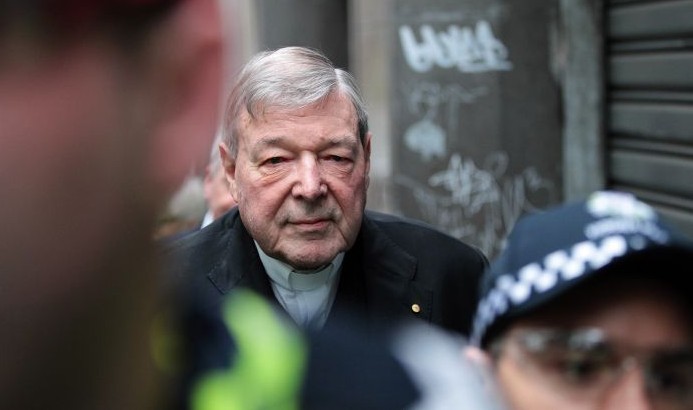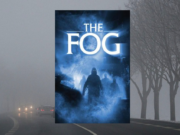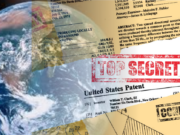
[Editor’s note: This is the full report published at the website Brokenrites.org, on 28 March 2018 “by a broken rites researcher.” It has had 49,000 views.]
Between 2012 and 2016, Cardinal George Pell was among numerous community leaders who were interviewed by the Australian government’s Royal Commission, which was inquiring into the general issue of child sexual abuse in organisations such as churches. Pell’s view was that, earlier in his career, he had known very little about clergy child-sexual abuse (“only rumours”) and, furthermore, that he personally finds such abuse “abhorrent”.
In view of Pell’s statements, a number of persons have spoken (separately) to police, each claiming to be a victim of sexual abuse allegedly committed by George Pell, years ago, during their childhood. Meanwhile, in 2014, Pell moved from Australia to Rome to take up a senior role in the Vatican. In mid-2017 he agreed to return to Australia, where police have charged him with “multiple” sexual offences allegedly committed some years ago in the state of Victoria, involving “multiple” complainants.
Pell denies these charges. In Melbourne in March 2018, a magistrate began hearing a preview of evidence to decide whether Pell will be ordered to undergo a criminal trial with a judge in a higher court.
Royal Commission inquiry
In late 2012, the Australian federal government instigated a public inquiry (the Royal Commission into Institutional Responses to Child Sexual Abuse), with the ultimate task of making recommendations to the federal and state governments about how to protect children in public organisations in future.
The Royal Commission’s public hearings examined how religious organisations (including the Catholic Church) have handled (or mis-handled) the general issue of church-related sex-abuse in the past. Many church office-bearers (including Archbishop George Pell) were called to give evidence (and to be cross-examined) about these church policies. The public could watch these proceedings in telecasts on the Royal Commission’s website. The website also published a printed transcript of all these public hearings.
In the Catholic Church, the Royal Commission heard examples of secrecy and cover-up regarding clergy sexual abuse.
Behind the scenes
During the years of the Royal Commission, any citizen had a right to contact the Royal Commission’s office privately (by letter or email or telephone), offering additional information. For example, a citizen might tell the Commission’s office that he/she had been sexually abused by a particular clergy person within a particular religious denomination. However, the Royal Commission did NOT investigate (or publish) these alleged incidents; instead, the alleged victim was offered the opportunity to have a private chat with police detectives.
In the state of Victoria, these detectives were from the Sano Taskforce, within the Victoria Police sexual crimes squad.
Pell in three public hearings
During its five years, the Royal Commission held 57 public hearings, lasting for a total of 444 days. In these public hearings, the Royal Commission examined a series of case-studies (that is, examples) about church policies in dealing with sexual abuse. Three of these case-studies happened to be about regions where George Pell formerly worked:
- Case Study 8, held in Sydney, in March 2014 (about how certain matters of clergy sexual abuse were handled in Sydneyand suburbs). Pell, who was the archbishop of Sydney in 2001-2014, answered questions for this case study in person. This was just before he departed from Sydney to take up his new role in Rome being in charge of the Vatican’s treasury.
- Case Study 35 in May 2015 (about how clergy sexual abuse was handled in Melbourne where Pell had been the archbishop in 1996-2001). For this case study, Pell was questioned in May 2015 by video-link from Rome.
- Case Study 28 in early 2016 (about how clergy sexual abuse was handled in the diocese of Ballarat, covering the western half of the state of Victoria, where Pell was a priest in the 1970s). Again, Pell appeared by video-link from Rome.
“Little knowledge of abuse”
During the years of the Royal Commission, George Pell was widely reported as saying that, earlier in his career, he had known very little about clergy child-sexual abuse (“only rumours”) and, furthermore, that he personally finds such abuse “abhorrent”. If any person then contacted the Royal Commission’s office (as a result of George Pell’s statements) to report their own experience regarding George Pell, the commission’s office would arrange for this person to speak privately with a detective from Taskforce Sano.
Worldwide attention
Because of Pell’s absence from Australia, people attending the Royal Commission’s public hearings in Australia were forced to watch the cross-examination of Pell on a large video screen in the Sydney or Melbourne hearings room. By giving his Royal Commission evidence in Rome (instead of in Australia), Pell increased the worldwide interest in his evidence.
And because of Pell’s reluctance to re-visit Australia, some people wondered whether the Victoria Police Sano Taskforce had received privately any allegations about Pell. If so, the normal procedure would be for the detectives to obtain a sworn written statement from each of the alleged victims outlining the circumstances of the complaint.
On 19 February 2016, Pell’s office issued a media statement from Pell, objecting to any “police investigation” — that is, objecting to the police examining any such allegations. Pell’s own media statement about this “police investigation” drew worldwide attention to Pell — and to the idea of a possible police investigation.
Pell’s diplomatic immunity
The Vatican state, which is a relatively tiny precinct within the Rome metropolis, has the status of a separate government, with the Pope as its monarch (and with Cardinal George Pell as one of the Vatican state’s senior cabinet ministers).
As a government official in the Vatican, Pell was entitled to diplomatic immunity, making it difficult for Australian civil authorities to gain access to him.
Defence lawyers
From early 2016 onwards, George Pell’s office began considering legal tactics to protect Pell from any police investigation. During 2016, Pell’s strategists began consulting Robert Richter QC, who has been described as Australia’s foremost criminal defence counsel. Richter has acted in some high-profile cases. He was the defence counsel for Julian Knight, who fatally shot seven people and injured 19 in Melbourne’s “Hoddle Street massacre” in 1987. And he successfully pleaded self-defence for gangland figure Mick Gatto who shot criminal Andrew “Benji” Veniamin in a Melbourne restaurant in 2014.
During 2016, Pell’s legal team realised that the Victoria Police were not going to abandon the alleged victims who evidently had provided the police with sworn, written statements about certain alleged incidents. In accordance with police procedures, the Sano Taskforce needed to interview Pell to obtain his response to the statements of any alleged victims. But how could the Victoria Police gain access to him as an official in a foreign state, the Vatican?
Eventually, in October 2016 (after negotiations between Pell’s defence team and the Victorian prosecuting authorities), George Pell agreed to be interviewed by the Victoria Police in Rome. Three Sano Taskforce detectives flew from Melbourne to Rome to obtain his response to the complaints of the alleged victims.
At the same time, Robert Richter QC too went to Rome to support Pell during the detectives’ inquiries.
Pell returns to Australia, 2017
In mid-2017, after further negotiations between Pall’s lawyers and the Victorian prosecutors, Pell agreed to return to Australia, so that his legal team could fight the charges. On 26 July 2017, Pell appeared briefly in the Melbourne Magistrates Court, accompanied by Robert Richter QC. This was an administrative procedure in which prosecutors for the state of Victoria officially filed “multiple” charges against Pell, involving “multiple” complainants, regarding sexual offences allegedly committed some years ago during his time in the State of Victoria.
The Magistrates Court did not release any details about the charges, including the number (or kinds) of charges or the number of alleged victims or where (or in what year) the alleged incidents occurred. These details were withheld from the public for legal reasons.
During the remainder of 2017 (and in early 2018), the state prosecutors and the defence lawyers appeared in the Magistrates Court again several times for a brief administrative procedure and update. These procedures were chaired by Belinda Wallington, who is the supervising magistrate for the sexual offences list at Melbourne Magistrates Court.
The defence lawyers indicated to the court that George Pell intends to fight the charges.
Preliminary hearing, 2018
On 5 March 2018, the Magistrates Court (under magistrate Belinda Wallington) began holding a four-weeks preliminary hearing (known as a “committal” hearing), during which the magistrate would hear a preview of all evidence to decide whether to send the case for a trial with a judge in a higher court, the Victorian County Court.
There are restrictions on media coverage. As usual in Victorian sexual abuse cases, the court was closed to the public and the media during the first week while each of the alleged victims appeared. Each victim appeared by video-link from another location. On each occasion, the prosecutor would introduce the alleged victim to the court and would ask this person to inspect their written police statement, which was then handed to the magistrate. After this introductory procedure, Pell’s legal team would cross-examine each of these witnesses at length, targeting the sworn written statement and disputing the witnesses’ credibility.
In the middle of the second week of the hearing, the court was opened to the media. Pell’s legal team then began cross-examining various other witnesses (such as family members or other helpers), accusing these witnesses of telling lies in their written pollce statements.
Several times, the magistrate had to stop the defence lawyers from ripping into the complainants and their family members.
During the four-weeks hearing, the court learned that several witnesses were no longer available. One of Pell’s accusers died (from leukemia) shortly before this committal hearing, and therefore the prosecutors had to delete this person (and his charges) from the case. A second witness did not complete the necessary full police written statement in time to be included in this hearing, and therefore (the court was told) this person might not be included in this committal hearing. And the court was told that a third person was “medically unfit” to face the court and therefore this person’s charges must be deleted from the Pell case.
The hearing continues.
Defence lawyers committing “mischief”
On 2 March (three days before Pell’s committal hearing began), Mr Robert Fitzgerald (one of the six commissioners who conducted Australia’s child-abuse Royal Commission) gave a talk in Sydney, in which he criticised defence lawyers who “mischievously” attack the credibility of abuse victims in court. To see more from Mr Robert Fitzgerald click HERE.






























“During 2016, Pell’s strategists began consulting Robert Richter QC, who has been described as Australia’s foremost criminal defence counsel. Richter has acted in some high-profile cases. He was the defence counsel for Julian Knight, who fatally shot seven people and injured 19 in Melbourne’s “Hoddle Street massacre” in 1987.”
Message to His Eminence:
Are you sure that someone who was part of the Hoddle St defense is likely to have your best interest at heart?
Considering that the ‘psychiatrist’ Paul Mullen was also involved with the Hoddle Street case (and Port Arthur, the New Zealand massacre, Monash University Massacre and the Court Psychiatrist for the Chemlsford Royal Commission), I’d be inclined to say that Pell had the best representation that the PTB could provide.
The Hoddle lawyer will have to work ten times as hard now. The survivors are a force to reckon with and they are feeling their cheerios.
As per usual in a case where a prominent person has been accused of criminal behaviour, the judicial system is drag out, hoping that certain witnesses will fall by the way-side.
But in the case of dupes like Martin Bryant there is necessarily a speedy conclusion to the court procedures.
The beauty of living in a democratic country. What is wrong with you people in Iran, Iraq, Syria, Libya and Afghanistan, wake up to the benefits of democracy.
Now for some investigation of Fiona Bennet’s exposures.
Whoops not within the RC terms.
BTW where is Fiona?
Oh well we still have ex senator Heffernan’s exposures.
Pot and kettle!?
Sorry; Barnett?
Then there is Franka Arena (sp?) thrown out of the NSW parliament (not pre-selected?) for her exposures plus what they did to Deidre ………. grusovin?
Some of us did not come down in the last shower Royal Commission.
https://kangaroocourtofaustralia.com/2018/03/24/big-freedom-of-speech-political-communication-win-with-cdpp-to-drop-criminal-charges-against-journalist-shane-dowling/#comments
I could add to this but l digress. Totally OT l would like to introduce you to this little back page news item
http://www.lowellsun.com/breakingnews/ci_31760938/texas-man-facing-weapons-charges-after-he-calls
Had ( l assume ) 30 round mags engineered to end to end each other for the AK while the AR-15 with bump stocks is a convenient placement for political purposes. Fire into an anti gun rally, leave behind a gun and a disabled autistic patsy as dog meat.
What a fucked up world we live in…
Thank you for the link David. It is not the LEAST bit off topic.
TEWKSBURY — Police and the FBI are investigating the intentions of a 59-year-old Texas man who man was caught with a massive weapons cache in a Tewksbury hotel before he told investigators he was on a classified mission for a government agency he refused to name.
That man and his common law wife are now both being held without bail as they face over 40 criminal charges, a dangerousness hearing, and investigation by groups that include the Joint Terrorism Task Force.
— first I’ve heard of a dangerousness hearing. — MM
Given the nature of the subject this report is incredibly vague.
I mean ,” fight the charges”?
What charges exactly?
And what exactly is the defence ?
So much for “factual information”